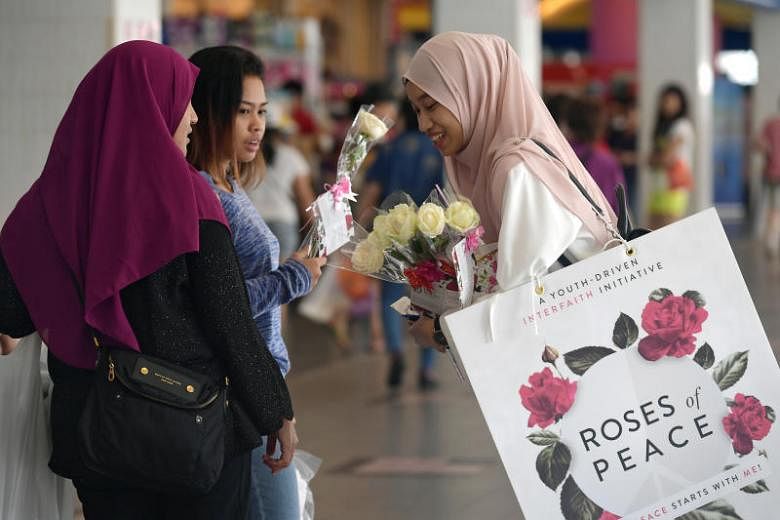SINGAPORE - Even though provisions have been made to ensure that minorities are elected president from time to time, the elected presidency may need to be reviewed down the road, as Singapore's racial make-up evolves, said Speaker of Parliament Tan Chuan-Jin on Sunday (Oct 8).
This is because the lines between different races will begin to blur with more mixed marriages, he added at a dialogue with about 150 young people.
The event was organised by non-profit organisation Roses of Peace.
Asked about how the elected presidency can continue to be representative as racial groups become less distinct, Mr Tan noted that the elected presidency system has been reviewed and tweaked over the years to keep with the times and would probably be refreshed in future as well.
One option to ensuring the system remains representative is the old way of appointing presidents, he said.
This was mooted by a Constitutional Commission reviewing the elected presidency last year. It had said the Government could, at some stage, consider separating the custodial and ceremonial roles of the President and return to having Parliament appoint the President.
Under this system, that was in place until 1991, there was an unspoken rule that saw the role being rotated among the major racial groups.
Mr Tan, citing this, said there is a desire for multiracial representation.
During the dialogue held at the Jamiyah Children's Home in Guillemard Crescent, he also spoke about the construct of the four main racial groups - Chinese, Malay, Indian and Others (CMIO) - and the important role it plays in maintaining racial harmony.
Some people see the model as highlighting the differences between different races, Mr Tan acknowledged. But he said recognising the differences can allow them to be managed with sensitivity.
Citing France, he said ethnic enclaves have sprung up in countries where policies ignore these differences and strive to be "colourblind".
"That's why that (CMIO) construct remains valid certainly for the near term. But over time, indeed as more and more mixed marriages take place, and we begin to see the shift in a more significant way, then you need to evolve," he said.
Earlier in the day, Mr Tan joined about 230 young people who fanned out across Singapore to distribute 10,000 roses tagged with messages of peace to the public.
The annual initiative was put together by Roses of Peace, which promotes peaceful relations and religious harmony.
Undergraduate Wanie Zainal, 21, helped out as a volunteer manager on Sunday after joining the effort last year to give out roses.
"I feel that we tolerate each other but may not yet understand or appreciate other races or religions very well...I hope this initiative will help everyone be more understanding," she said.


